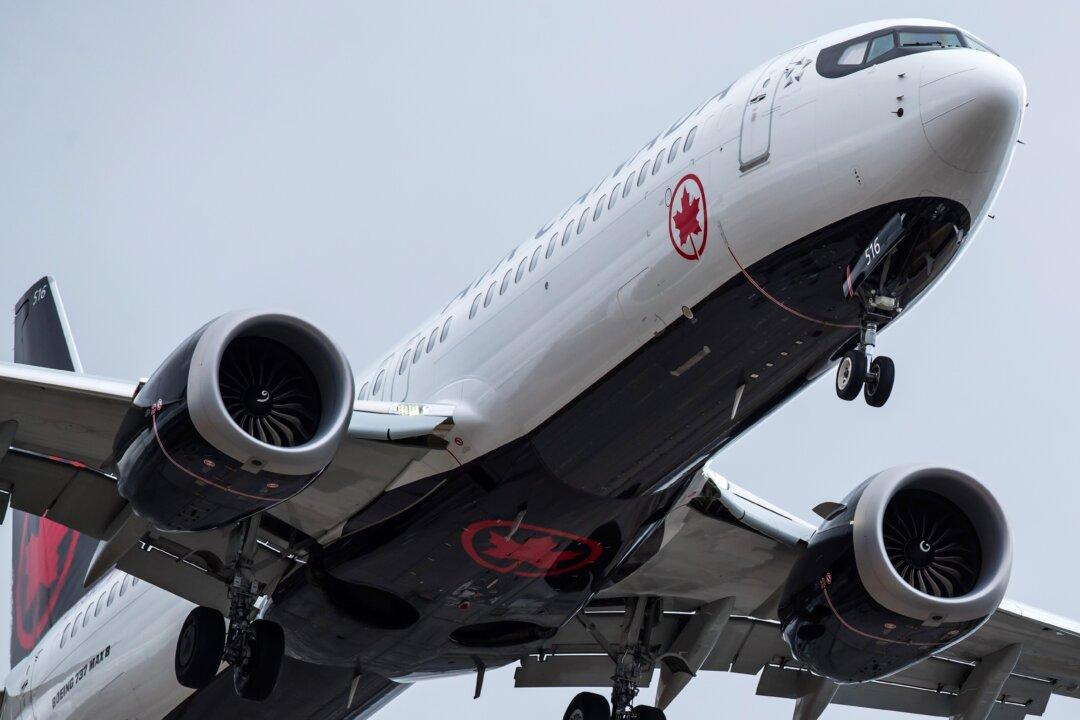Air Canada has raised nearly $500 million by selling and leasing back nine aircraft to help offset the cash drain from COVID-19. The aircraft, Boeing 737 Max 8s, are still grounded by aviation authorities.
The Montreal-based airline says it completed the sale of three Max 8s to Jackson Square Aviation, and six to Avolon Aerospace Leasing Limited for $485 million, and secured long-term leases on the planes from the two companies for $458 million.





